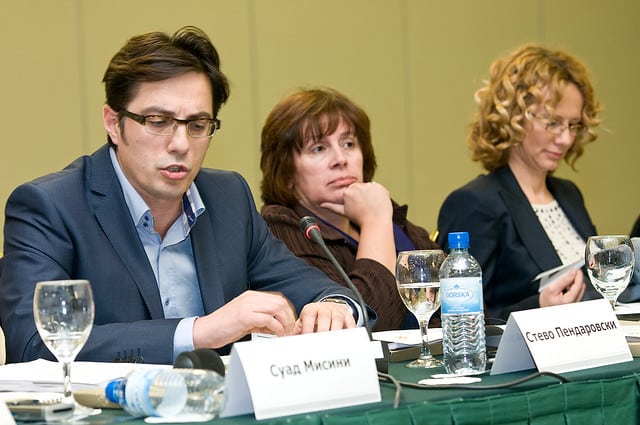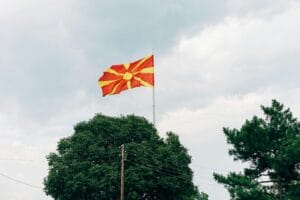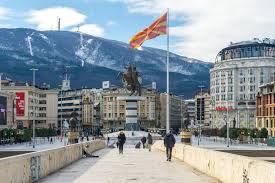On the 12th of May, Stevo Pendarovski was inaugurated as North Macedonia’s new president in Skopje after he won the presidential runoff on the 5th of May, backed by North Macedonia’s ruling Social Democratic Union of Macedonia (SDSM). The State Election Commission indicated 51.7 percent of the votes to be in favour of Pendarovski, defeating his rival of the conservative Internal Macedonian Revolutionary Organization – Democratic Party for Macedonian National Unity (VMRO-DPMNE) Gordana Siljanovska-Davkova, who obtained 44.7 percent. The voter turnout came down to 46.6 percent, which was just enough to make the threshold of the 40 percent needed to officialise the voting.
Road to elections
The victory of Pendarovski put an end to the term of former President Gjorge Ivanov, who has been in power for two terms of five years each. In 2009 he became president, backed by the main conservative opposition VMRO DPMNE. In 2017, Macedonia’s parliament elected a center-left coalition led by Prime Minister Zoran Zaev, ending the 11-year rule of the VMRO-DPMNE. An important turning point for North Macedonia was the recently opted name change from ‘Macedonia’ to ‘the Republic of North Macedonia’, ending a decades-long name dispute between North Macedonia and Greece. The so called Prespa Agreement was adopted by the parliament, led by Prime Minister Zoran Zaev and his social democratic government. This agreement paved the way for North Macedonia to take steps to join the NATO and the EU in the near future, which was at first blocked by Greece because of the name dispute. Pendarovski was a proponent of the name deal, while Ivanov turned out to be a fierce opponent and boycotted the referendum held on the 30th of September last year.
Pendarovski was nominated as SDSM presidential candidate back in 2014 as well. He now had the support of several smaller parties too, including the Albanian Democratic Union for Integration and two other Albanian parties. He stated that this support shows how it is possible for groups from different ethnic backgrounds to “unite for the same goals”, setting into motion membership in Euro-Atlantic institutions, the implementation of laws that look after rights of citizens and the appointment of representatives that “go beyond ethnic lines of division”. Ivanov on the other hand, refused during his term to sign bills backed by the parliament about the wider use of the Albanian language. However, he did not have authority to block the constitutional amendment of the name change.
Pendarovski and ‘reconciliation’
With the appearance of social-democrat Pendarovski on the election- and now presidential stage, the SDSM can continue to implement steps at a faster pace that allow North Macedonia to accede to the EU and NATO. During his inauguration, Pendarovski called for “reconciliation” in a “deeply divided society”. He spoke about the many divisions that are mostly visible in the political atmosphere.
“The result from this presidential election means the guaranteed move as a country for membership of NATO and the EU, together with economic development in a world where we belong,” Pendarovski declared during the inauguration session. Moreover, the country needs to tackle “corruption, crime and nepotism”. Plans of the social democrat coalition will be pro-European, pro-NATO and pro-reform. Since the Prespa Agreement, NATO has already formally invited North Macedonia to begin the accession talks. EU accession will be a longer process as the country hopes to open accession negotiations this year.
Future support
The elections can be seen as a test for the progressive majority, as the question rose if they still enjoy support from the public after the name deal has been made official. The foreign minister of Greece, Sia Anagnostopoulou, spoke about North Macedonia ending its “nationalistic path” with the VRMO-DPMNE and that the country now can move forward. These elections show, despite the small number of voter turnout, that they still receive support for the offered reforms.
Sources: Euronews, Radio Free Europe I, Radio Free Europe II, Radio Free Europe III, Reuters
Photo: Flickr



